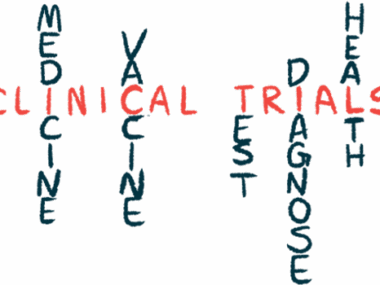FDA grants fast track status to hemophilia B treatment SerpinPC
Interventional studies of Centessa therapy due to launch this year
Written by |

The U.S. Food and Drug Administration (FDA) has granted fast track designation to SerpinPC, Centessa Pharmaceuticals’ investigational treatment for people with hemophilia B.
Fast track status expedites the review of therapy candidates that show a potential to fill an unmet medical need for serious conditions. It also allows more frequent interactions with the regulatory agency to discuss the company’s drug development plan.
Given as an under-the-skin (subcutaneous) injection, SerpinPC now is undergoing evaluation in Centessa’s PRESent registrational research program. This includes clinical trials — interventional studies are planned for later this year — intended to support future regulatory approval of the hemophilia B treatment.
“We are pleased with the FDA’s decision to grant fast track designation for SerpinPC as we continue to advance the PRESent registrational studies for SerpinPC in hemophilia B,” Saurabh Saha, MD, PhD, Centessa’s CEO, said in a company press release.
PRESent studies testing the hemophilia B treatment candidate in patients
People with hemophilia usually have genetic mutations that compromise their body’s ability to produce certain blood-clotting factors — proteins that play a key role in blood clotting.
SerpinPC is designed to suppress a protein called activated protein C, allowing for greater production of the blood-clotting protein thrombin.
With its particular mechanism of action, the therapy has the potential to help prevent bleeds in patients regardless of their hemophilia type or severity, or the presence of neutralizing antibodies known as inhibitors. These antibodies can lower the effectiveness of standard hemophilia replacement therapies.
“This designation is important recognition of SerpinPC’s novel mechanism of action and underscores the critical need for new treatment options for persons with hemophilia B,” Saha said.
The company’s registrational program for SerpinPC in hemophilia B includes a set of clinical studies with multiple components.
Launched late last year, the ongoing PRESent-5 study (NCT05605678) aims to enroll up to 200 males, ages 12-65, with hemophilia A or B, with or without inhibitors.
Participants are being recruited at sites in Europe, Asia, and South Africa; treatment centers in the U.S. and Canada are not yet recruiting.
PRESent-5 is an observational study that will collect data on patients’ bleeding rates under standard therapies before they start treatment with SerpinPC in the interventional studies. Those interventional studies are set to begin this year.
The planned studies include PRESent-2 (NCT05789524), which is expected to enroll 120 patients with moderate to severe hemophilia B (without inhibitors) or severe hemophilia A (with or without inhibitors). Participants will receive SerpinPC at a dose of 1.2 mg/kg every one, two, or four weeks, for about six months (24 weeks).
After that, all will receive the most beneficial dose for an additional six months. Those who complete the treatment phase may then enter into an extension period for another six months of treatment.
PRESent-3 (NCT05789537) aims to test the therapy in 12 hemophilia B patients with inhibitors. In that trial, participants will receive 1.2 mg/kg of SerpinPC every two weeks for about a year.
The primary outcome of both of these interventional studies is to assess SerpinPC’s ability to reduce bleeding rates.
We believe SerpinPC has the potential to be a first-in-class subcutaneously administered therapy with a differentiated safety profile for persons with hemophilia B, subject to review and approval.
All of these trials followed positive data from a Phase 1/2a trial (NCT04073498), which showed that SerpinPC safely reduced the number of bleeding episodes in hemophilia patients by as much as 88%. The number of spontaneous joint bleeds were lowered by up to 94%.
The FDA recently awarded orphan drug status to the therapy, a designation that is intended to support the development of medicines aiming to treat rare conditions. This designation also provides up to seven years of marketing exclusivity should the therapy be approved.
“We believe SerpinPC has the potential to be a first-in-class subcutaneously administered therapy with a differentiated safety profile for persons with hemophilia B, subject to review and approval,” Saha said.

